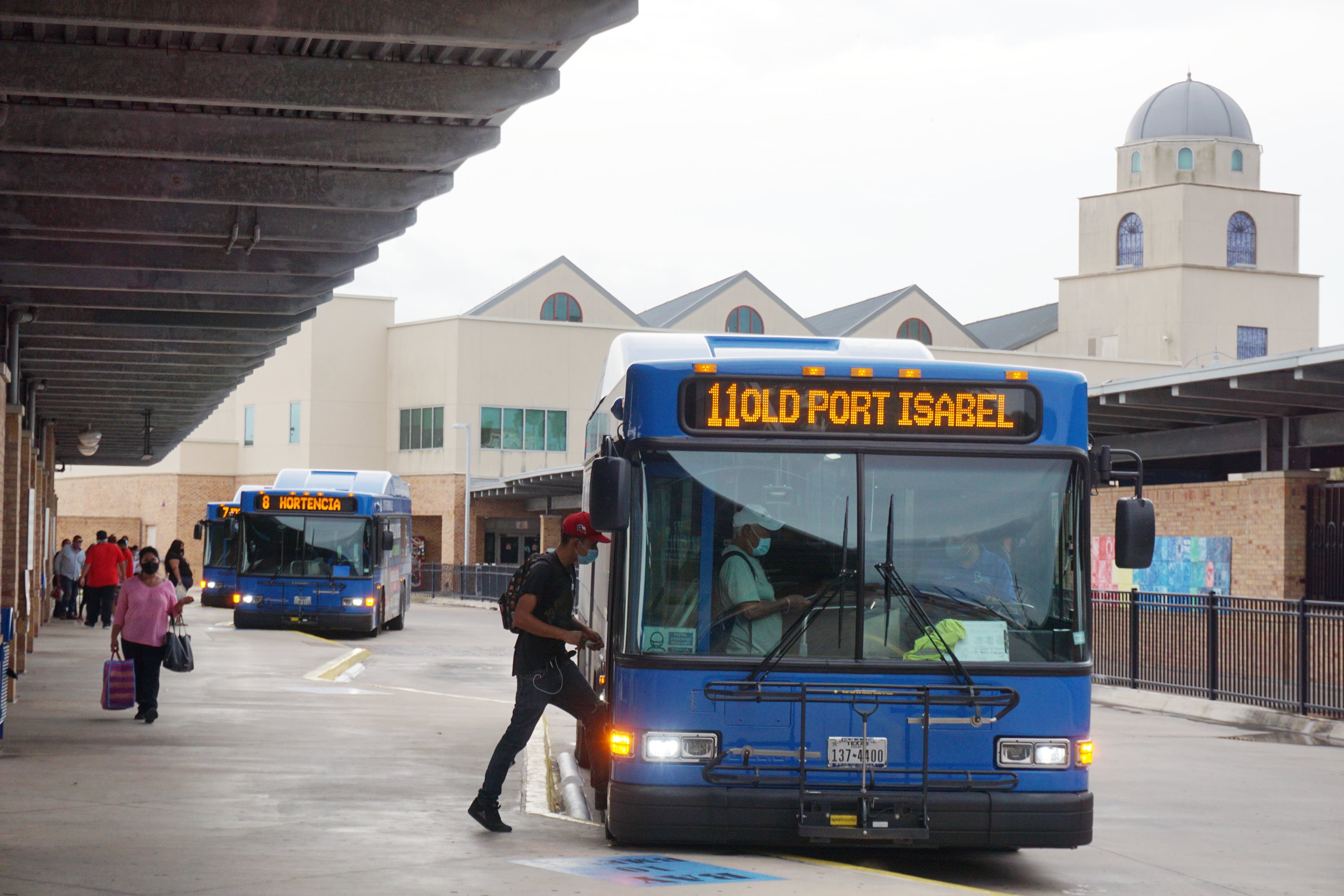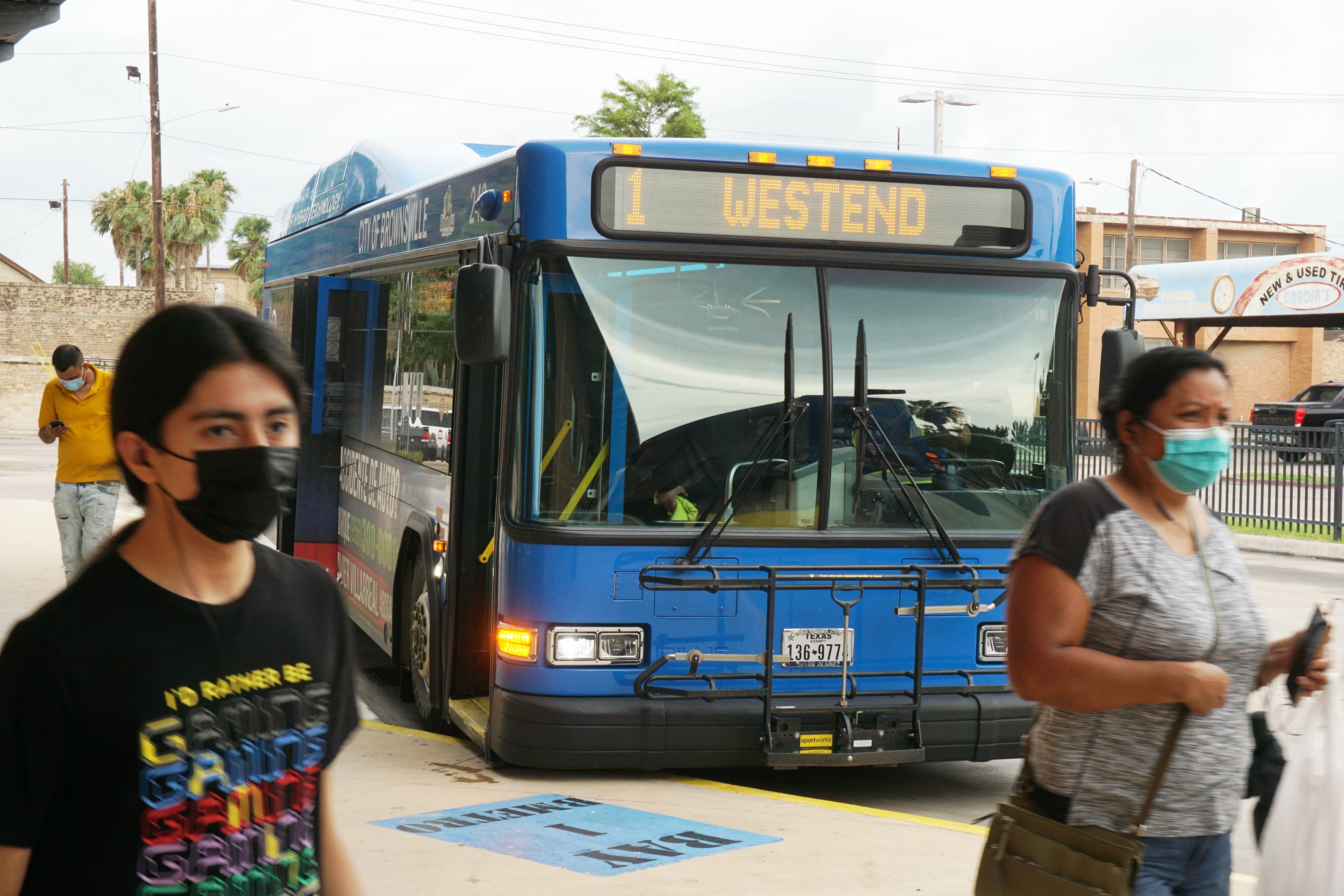|
Only have a minute? Listen instead
Getting your Trinity Audio player ready...
|

Brownsville’s public transit system is like countless others across the nation in that its fleet of vehicles is aging and needs to be replaced.
Finding the money to do that is a lot easier said than done, which is why B-Metro landing a $4.7 million grant for new hybrid electric buses through the Federal Transit Administration’s Low or No Emission Vehicle Program is big news.
That’s according to Gennie Garcia, deputy director of the city’s multimodal transportation department, who noted that that’s $4.7 million the city won’t have to spend on new buses.
The grants are made possible by the bipartisan Infrastructure Investment and Jobs Act, which President Joe Biden signed into law in November 2021. The money is part of $1.7 billion in funds being distributed nationwide through the program. FTA is under the U.S. Department of Transportation.
“It’s a big deal because it’s very competitive,” Garcia said. “All the (transit) systems needs vehicles. It’s especially hard to find funding for vehicles, so when this opportunity came we jumped right on it.”
B-Metro wrote the winning grant application in house, she said, noting that Brownsville is one of only 125 communities across the United States to be chosen. The $4.7 million will allow B-Metro to purchase six new, 35-foot Gillig Allison eGen Flex buses, which are much more economical to operate than older style diesel-powered buses and produce many fewer emissions, Garcia said.
Brownsville’s transit system owns 22 35-foot buses for fixed routes. It already has six Gillig hybrid electric buses in operation, and six more of B-Metro’s older style diesel buses will be retired when the new buses come on line in 12 to 18 months, she said. The new buses run on battery power until they reach 35 mph, then automatically switch over to diesel power.
“It really helped to write in the grant that we are already transitioning toward hybrid electric and reducing our emissions throughout the city,” Garcia said. “FTA was supportive of that.”

Through a technology known as geo-fencing, which uses GPS to pinpoint a vehicle’s exact location, the new buses will automatically switch over to electric power in more densely populated parts of the city without the driver having to do anything, she said.
“We can put geo-fencing around certain areas on our route that will engage it to be all electric,” Garcia said. “We can set parameters through downtown or certain areas that are really big hot spots where we would really like to reduce emissions. … The goal for this grant and these vehicles is to reduce emissions.”
Garcia said B-Metro’s older buses are between 15 and 23 years old, while the useful life of a bus is just 14 years. That means B-Metro will start up the grant-writing machine again soon to be able to replace the remainder of the fleet, she said.
“We were fortunate enough to write an excellent grant to get this and a great fleet-transition plan to provide the Federal Transit Administration,” Garcia said. “We’ll be busy planning and writing an even better grant for the next year. We kind of have an idea now what’s expected.”
Being able to replace outmoded equipment is a “big win” for the city and its residents since the new vehicles will be safer and more reliable, she said, adding that the grant funding itself should come through by the end of July at the latest.
“If we can get this rolling by the end of summer, I would say that by the end of next year I would anticipate some new buses,” Garcia said.
U.S. Rep. Vicente Gonzalez, whose office announced the grant news on June 27, said the funding “paves the way for a modern fleet of buses in Brownsville.”
“The grant is a direct result of the bipartisan infrastructure law and is another example of how Democrats are continuing to deliver for Americans,” he said. “These new vehicles will not only be better for our environment but will also create jobs to build, service and operate the new fleet and expand access to public transit in Brownsville.”



